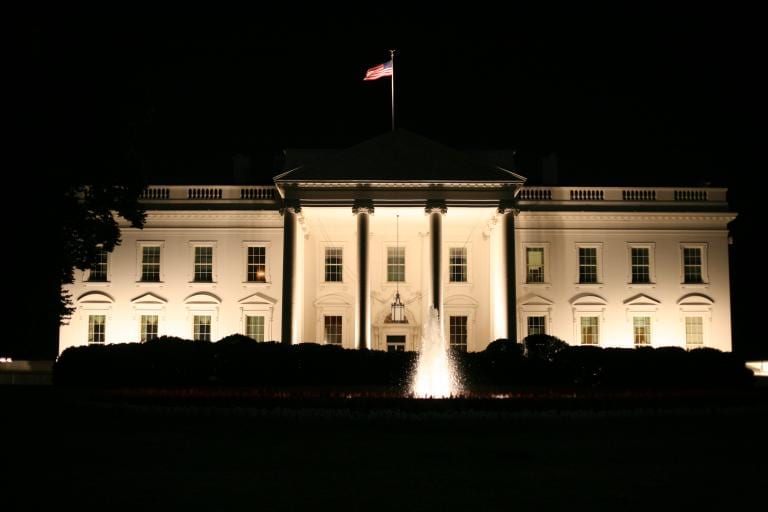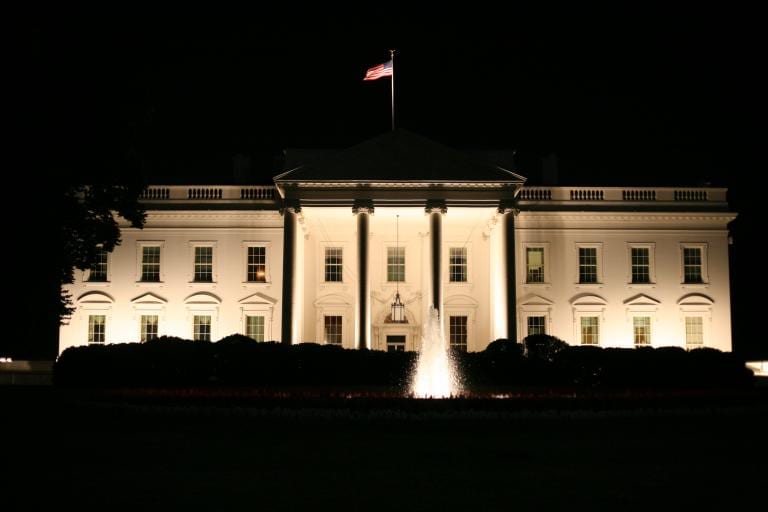SEPTEMBER 18, 2020 BY PAUL LOUIS METZGER

Different attempts have been made to define and reflect upon “deep state”. Here are a few titles: “What Is the Deep State?”; “The Deep State Is Real?”; “Deconstructing the Deep State”; “President Trump’s Allies Keep Talking About the ‘Deep State.’ What’s That?”; and “Here’s the Memo that Blew Up the NSC.”
Here’s how Merriam-Webster defines “Deep State,” while also providing some examples:
An alleged secret network of especially nonelected government officials and sometimes private entities (as in the financial services and defense industries) operating extralegally to influence and enact government policy.
The power of the deep state comes from experience, knowledge, relationships, insight, craft, special skills, traditions, and shared values. Together, these purported attributes make nameless bureaucrats into a supergovernment that is accountable to no one. That is a scary prospect.
— David Rothkopf
What the archbishop suspected was a crime stage-managed by Turkey’s “deep state”—an opaque underworld where powerful elements within the state, especially the military and security services, act in conjunction with violent extremist groups … as well as the apolitical criminal underworld, to undertake special, illegal operations in the political interest of the country’s ruling elite.— John Eibner
While supporters claim the Deep State is out to undermine President Trump’s presidency (refer here and here for critiques), others have argued there have been powerful establishment forces operating behind the scenes intent on undermining other presidencies. Consider this example: Deep Politics and the Death of JFK (University of California Press). For another volume that deals with big forces inside and outside of government that makes it difficult to effect change and which uses the terminology of “deep state” with less conspiratorial and non-partisan associations, read The Deep State: The Fall of the Constitution and the Rise of a Shadow Government (Penguin Books). The author Mike Lofgren’s basic idea is this: “…big institutions, inside and outside of government, are so entrenched it’s hard to bring any real change. Political options are limited.” Lofgren was a longstanding former Republican congressional staffer and now and Independent. He does not like the use of the “deep state” terminology today, which is far more partisan with conspiratorial associations.
No doubt, we will have opportunity to discuss further “deep state” as well as “deep market” in a future entry. It often seems that those today arguing against what they take to be the “deep state” are less inclined to think about the market. At least in my evangelical Protestant circles, the market appears to be a more benign, even natural force, that operates best if left alone. Refer here to Gordon Bigelow’s Harper’s Magazine article, “Let There Be Markets: The Evangelical Roots of Economics.” However, if one were to consider the possibility of a “deep market” conspiracy theory counterpart to the “deep state” narrative, the invisible hand of the market would not be divine or natural, but rather a select group of corporate figures who benefit greatly and malignantly at the expense of the vast majority’s blood, sweat, and tears.
I must confess that I shed more tears over what I take to be a shallow religious or spiritual domain in many Christian circles than some supposed deep state, or deep market. That is why I have included “Shallow Jesus” and “Shallow Church” in the title of this piece. I am hard pressed to find in my circles a deep and abiding confidence in Jesus overseeing and intersecting the world and universe similar to what we find in Paul’s Epistle to the Colossians with Jesus being the firstborn over all creation, head of the church, and firstborn from among the dead:
He is the image of the invisible God, the firstborn of all creation. For by him all things were created, in heaven and on earth, visible and invisible, whether thrones or dominions or rulers or authorities—all things were created through him and for him. And he is before all things, and in him all things hold together. And he is the head of the body, the church. He is the beginning, the firstborn from the dead, that in everything he might be preeminent. For in him all the fullness of God was pleased to dwell, and through him to reconcile to himself all things, whether on earth or in heaven, making peace by the blood of his cross (Colossians 1:15-20; ESV).
Contrary to Jesus in all his cosmic majesty and splendor, as noted here, what I often find is a privatized and partisan Jesus who easily fits in our back-pocket wallet. I also find little evidence of a deep and profound church that is so taken by Jesus that we do not allow the political forces of right and left to dominate our imaginations, but the politics of Jesus’ kingdom. As I wrote with Brad Harper in Exploring Ecclesiology several years ago, and only find greater evidence of it today, the church is often viewed as a voluntary association of religious individuals whose true allegiance is not with Jesus’ kingdom, but the state, market, and/or nuclear family.
Our ultimate allegiance to Jesus and his kingdom community provides the relational and political cushion that safeguards against hopelessness, hype, and worship of other gods or false allegiances, including political figures of various stripes and financial powers. Power corrupts and absolute power corrupts absolutely, as the old saying goes. What is needed is the cruciform power and love of Jesus and his beloved ecclesial community that breaks through the partisanship and allegiance to false gods on the right and left and everywhere in between. Such power and love also frees us from enslavement to those commodifying market forces that reduce personal value and dignity to the going exchange rate involving supply and demand. Here I call to mind David Hollenbach’s persuasive claim that religion’s presence should serve as “an intermediary institution in the public sphere.” As such, it “both resists efforts to exclude the religious voices as well as supports the freedom and rights of all persons against domination by the state or economic sphere.” See Mary Elsbernd, O.S.F., “Social Ethics,” Theological Studies 66 (2005): 150. Elsbernd references David Hollenbach, The Global Face of Public Faith: Politics, Human Rights, and Christian Ethics (Washington: Georgetown University, 2003), 142-144. A deep Jesus and deep church rather than shallow and easily subsumed imitations will guard us from falling prey to deep state and deep market forces of various kinds, as well as those idols who claim to save us from them.
Trusting in Jesus by the Spirit as proclaimed and expressed through the Word and Sacrament in the community of faith will not allow us to run from the world and its problems but take us deeper into them. It will also help us guard against cynicism, realizing that our systems are by no means fool-proof and are ever in need of reform, just like the church. May God’s conspiracy of love disclosed in Jesus’ Gospel of the Kingdom inspire us not to expire but lead us forward as the triune God’s community of faith.
I close with the sobering and ever relevant words of Bob Dylan who in the Vietnam era of 1965 wrote/sang of “human gods,” “toy guns that spark,” and “flesh-colored Christs” which “glow in the dark.” He painfully reflected that it is quite clear how very little is “sacred.” In this song titled “It’s Alright Ma (I’m Only Bleeding),” Dylan continued by apparently making a connection between people wrongly profiting at the expense of religion and education while goodness hides. But like goodness, truth will not remain hidden forever. Dylan notes that even the US President “sometimes must have to stand naked.” No matter how much we conspire in the darkness, the deep Jesus as the light of the world will shine and expose all of us in the White House and on Capitol Hill, the supposed deep state, deep market, and shallow church.
Check out this related reflection at New Wine, New Wineskins’ YouTube channel.
- TAGGED WITH:
- UNCATEGORIZED
